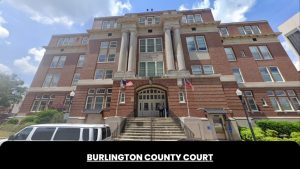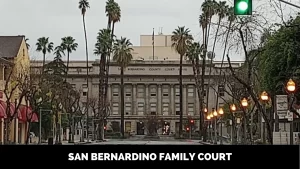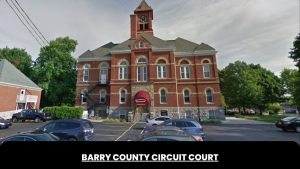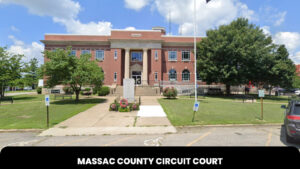Kentucky Circuit Courts
Kentucky’s circuit court system plays a vital role in the state’s judiciary and handles a wide range of important civil and criminal cases. The Kentucky circuit courts are the state’s courts of general jurisdiction and have served the Commonwealth since its founding in 1792. These courts have undergone changes and expansion over the years but remain critical to the administration of justice across Kentucky. Understanding the history, structure, jurisdiction, and key personnel of the circuit courts provides important insight into a key component of Kentucky’s judicial system.
History of Kentucky Circuit Courts
The Kentucky circuit courts were established in 1792 as part of the state judiciary system outlined during Kentucky’s statehood process. As the state expanded westward, so did the circuit courts. In 1801, Kentucky had four circuit court districts but by 1851 this had grown to 14 judicial districts and 38 circuits. After the 1891 Kentucky Constitution, the circuit court system was amended so that each county had an individual circuit court.
Over the years, the circuit courts underwent other changes such as the establishment of an intermediate Court of Appeals in 1976 to help manage the circuit court appellate caseloads. However, the basic circuit court structure and jurisdiction established during statehood remains intact to this day. The Kentucky circuit courts have evolved along with the state while retaining their original identity and function as general jurisdiction trial courts.
Mapping Kentucky’s Judicial Circuits
To understand the distribution of Circuit Courts in Kentucky, we can refer to the following circuits:
- First Circuit – Hickman, Fulton, Carlisle, Ballard
- Second Circuit – McCracken
- Third Circuit – Christian
- Fourth Circuit – Hopkins
- Fifth Circuit – Crittenden, Webster, Union
- Sixth Circuit – Daviess
- Seventh Circuit – Logan, Todd
- Eighth Circuit – Warren
- Ninth Circuit – Hardin
- Tenth Circuit – Nelson, LaRue, Hart
- Eleventh Circuit – Taylor, Green, Marion, Washington
- Twelfth Circuit – Oldham, Henry, Trimble
- Thirteenth Circuit – Jessamine, Garrard
- Fourteenth Circuit – Bourbon, Scott, Woodford
- Fifteenth Circuit – Carroll, Owen, Grant
- Sixteenth Circuit – Kenton
- Seventeenth Circuit – Campbell
- Eighteenth Circuit – Pendleton, Harrison, Nicholas, Robertson
- Nineteenth Circuit – Bracken, Fleming, Mason
- Twentieth Circuit – Lewis, Greenup
- Twenty-first Circuit – Bath, Menifee, Montgomery, Rowan
- Twenty-second Circuit – Fayette
- Twenty-third Circuit – Estill, Lee, Owsley
- Twenty-fourth Circuit – Martin, Lawrence, Johnson
- Twenty-fifth Circuit – Clark, Madison
- Twenty-sixth Circuit – Harlan
- Twenty-seventh Circuit – Knox, Laurel
- Twenty-eighth Circuit – Lincoln, Rockcastle, Pulaski
- Twenty-ninth Circuit – Adair, Casey
- Thirtieth Circuit – Jefferson – Jefferson County Circuit Court
- Thirty-first Circuit – Floyd
- Thirty-second Circuit – Boyd
- Thirty-third Circuit – Perry
- Thirty-fourth Circuit – McCreary, Whitley
- Thirty-fifth Circuit – Pike
- Thirty-sixth Circuit – Magoffin, Knott
- Thirty-seventh Circuit – Carter, Elliott, Morgan
- Thirty-eighth Circuit – Butler, Edmonson, Hancock, Ohio
- Thirty-ninth Circuit – Breathitt, Powell, Wolfe
- Fortieth Circuit – Clinton, Cumberland, Monroe
- Forty-first Circuit – Clay, Jackson, Leslie
- Forty-second Circuit – Calloway, Marshall
- Forty-third Circuit – Barren, Metcalfe
- Forty-fourth Circuit – Bell
- Forty-fifth Circuit – McLean, Muhlenberg
- Forty-sixth Circuit – Breckinridge, Grayson, Meade
- Forty-seventh Circuit – Letcher
- Forty-eighth Circuit – Franklin
- Forty-ninth Circuit – Allen, Simpson
- Fiftieth Circuit – Boyle, Mercer
- Fifty-first Circuit – Henderson
- Fifty-second Circuit – Graves
- Fifty-third Circuit – Anderson, Shelby, Spencer
- Fifty-fourth Circuit – Boone, Gallatin
- Fifty-fifth Circuit – Bullitt
- Fifty-sixth Circuit – Caldwell, Livingston, Lyon, Trigg
- Fifty-seventh Circuit – Russell, Wayne
Structure and Jurisdiction of Circuit Courts
There are 57 circuit court judicial circuits in Kentucky which are organized into districts. While circuit court districts are determined by population and caseload size, they do not cross county lines. Each county has its own circuit court, with 120 total county circuit courts in the state.
Kentucky’s circuit courts are courts of general jurisdiction, meaning they hear a wide range of civil and criminal matters. This includes felony criminal cases, civil matters involving sums over $5,000, divorce, probate of wills, adoptions, and juvenile cases. Circuit court jurisdiction also includes appeals from district court rulings as well as family court cases.
Cases are brought before circuit court judges or juries who render decisions and judgments. Trials can involve juries selected from the county population. While district courts handle smaller, misdemeanor cases, the circuit courts take on the most significant civil actions and felony criminal prosecutions in the Commonwealth.
Circuit Court Judges
Circuit court judges hold significant powers and responsibilities in the Commonwealth’s judiciary. Circuit court judges are elected to six-year terms in nonpartisan elections. Candidates must be licensed attorneys who reside in the district they wish to represent.
Circuit court judges have jurisdiction over their respective county circuit courts. They preside over trials and hearings, rule on pre-trial motions, and instruct juries. For criminal cases, judges set bail amounts and impose sentences per sentencing guidelines. In civil suits, circuit court judges make rulings and issue judgments. Judges also have the power to issue warrants and subpoenas.
In addition to trial duties, circuit court judges manage court personnel, clerks, and staff. They help determine schedules, caseloads, and administrative matters in their circuits. Circuit court judges also oversee juvenile detention facilities and probation officers in their jurisdictions. Their broad powers and jurisdiction make circuit court judges highly influential figures across the state’s legal system.
Circuit Court Proceedings
When the circuit court is in session handling trials, judges manage busy court dockets and schedules. The process begins when the circuit clerk receives a civil complaint or criminal indictment from the grand jury. These filings are entered into the court record to initiate the proceedings.
For civil suits, the circuit clerk issues a summons informing the defendant of the case against them. In criminal cases, arrests are processed through the circuit clerk’s office as well. Judges determine if the case moves forward based on preliminary hearings or grand jury indictments.
Circuit court trials adhere to Kentucky’s Rules of Evidence and Rules of Civil Procedure. For criminal cases, defendants are entitled to a trial by jury unless waived. Juries consist of 12 citizens selected from the county population. Witnesses are called and documents submitted as evidence during trials. Judges maintain courtroom procedures and make evidentiary rulings during the proceedings.
For judgments in civil suits, juries may award monetary damages. In criminal convictions, the judge will impose a sentence per state guidelines. Cases can be appealed from circuit court to the Kentucky Court of Appeals and state Supreme Court. However, the circuit courts are the central forum for holding trials and rendering judgments across the state.
Notable Kentucky Circuit Court Cases
The Kentucky circuit courts have decided many high-profile cases that attracted statewide and national media coverage through the years. These include:
- The Kentucky vs John Scopes “Monkey Trial” held in Dayton, Kentucky in 1925 regarding teaching evolution in schools. Scopes was found guilty but the conviction was later overturned.
- The 1937 trial of Harlan County sheriff Theodore Middleton for shooting a coal company employee during a miners’ strike. Middleton was convicted of manslaughter.
- The 1955 murder trial of Kentucky State Treasurer Henry Hargis for the shooting death of a Circuit Judge. The case ended in acquittal.
- The 2007 fraud trial of Kentucky governor Ernie Fletcher which ended in a agreed upon settlement and dismissal.
- The 2012 conviction of Jerry Sandusky for felony sex crimes committed while a football coach at Penn State. Sandusky was tried in Bellefonte, Kentucky.
These and other famous trials shed light on Kentucky’s legal history and the important role circuit courts played in deciding these influential cases. The rulings handed down in Kentucky’s circuit courts have left an indelible imprint on the state and nation.
Circuit Clerk Role
In addition to judges, each county circuit court has an elected circuit court clerk who manages key administrative aspects. Circuit clerks serve six-year terms and oversee robust responsibilities:
- Maintain all court records, documents, and files for civil and criminal cases
- Collect and distribute court fees and fines
- Accept legal filings and process lawsuits, indictments, motions
- Issue subpoenas and warrants
- Summon jurors when requested by the circuit court judge
- Manage court finances and budgets
By keeping meticulous court records, collecting legal fees, and handling documents, the circuit clerk ensures effective court operations and enforcement of rulings. Kentucky’s circuit clerks provide integral support that allows the Commonwealth’s trial courts to function successfully.
Conclusion
For over 200 years, Kentucky’s circuit courts have served as the state’s primary trial courts and helped maintain the rule of law. The legacy and importance of the circuit courts is woven into the fabric of the Commonwealth. Through timely trials, local access to justice, and important rulings, the circuit courts provide an indispensable service at the heart of Kentucky’s legal system. The judges, clerks, and personnel ensure these courts continue to operate fairly and efficiently. Kentucky’s future success relies on maintaining a strong network of circuit courts across the state.
FAQs
How many circuit court districts are there in Kentucky?
There are currently 57 circuit court districts in Kentucky, encompassing the state’s 120 county circuit courts.
What educational requirements are there for circuit court judges?
Circuit court judges must hold a law degree and be licensed attorneys in the state of Kentucky. There are no specific educational prerequisites beyond a juris doctorate.
What types of cases do circuit courts handle?
Kentucky circuit courts handle major civil suits and felony criminal trials along with juvenile, adoption, wills and probate, and family court cases. The circuit courts are courts of general jurisdiction.
How are jury members selected for circuit court trials?
Jury members are selected randomly from registered voter lists and driver’s license registries from the population of the county where the circuit court trial takes place. Jurors may be screened by the judge and attorneys for suitability.
Can you appeal rulings from Kentucky’s circuit courts?
Yes, appeals of circuit court decisions can be made to the Kentucky Court of Appeals and state Supreme Court, which are part of the appeals process. The circuit courts themselves hear appeals from Kentucky’s district courts.






